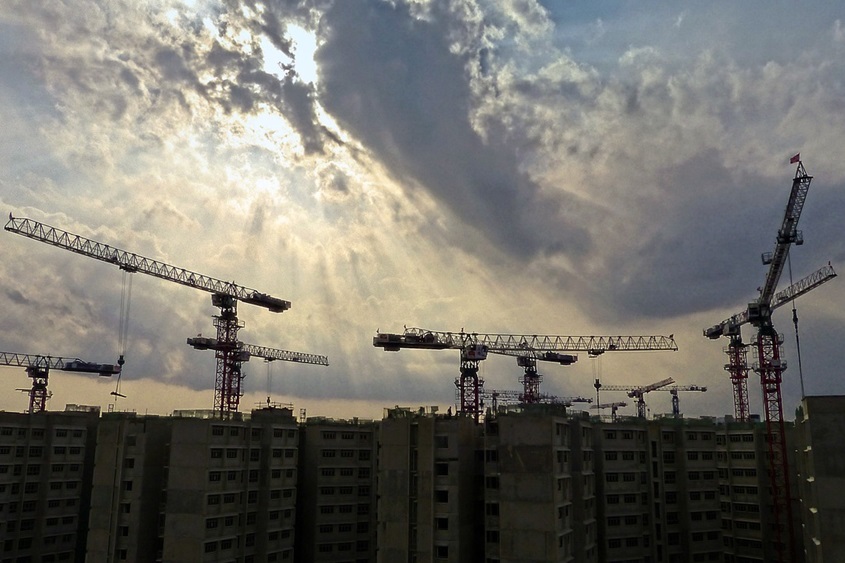If you buy an apartment or business space in a building for which the investor has not yet repaid the loan, and the land is mortgaged, there is a possibility that you may lose the purchased property regardless of the fact that you have personally paid the full amount.
Written by: Andrijana Pisarević; Cover photo: Pixabay
To construct residential and commercial buildings, investors in Republika Srpska often take out loans from banks. However, if they fail to repay these loans, their debts can easily transfer to the buyers of apartments and business spaces, even though they have already paid their share to the investor, often also through loans from banks.
To secure loans, investors usually put land under mortgage as collateral, which then “extends” to the building that is yet to be constructed. Buyers of apartments often overlook or do not fully understand this clause when entering into purchase agreements, trusting that the investor will finish the project on time and with a certain level of quality, as promised.
The problem arises when the investor sells the apartment or business space but fails to repay the borrowed funds to the bank and meet the agreed deadlines. Banks then turn to the buyers to recover their claims from their apartments and business spaces.
This happened to the owner of a business space in a building in the suburbs of Banja Luka, who spent a lot of time and money, even reaching the Supreme Court in an attempt to prove that the mortgage does not apply to his property and that the bank should recover the debts from the assets of the investor who has meanwhile gone bankrupt. Ultimately, he was unsuccessful in this endeavour, and his business space ended up being sold.
All of this is confirmed by a court ruling from the Supreme Court of Republika Srpska issued at the end of last year, which decided that the mortgage on the land can encompass the constructed residential and commercial units, thus becoming a burden for new owners of apartments and business spaces.
This ruling overturned previous decisions made by the District Court and, before that, by the Basic Court in Banja Luka, which did not allow the bank to enforce its claim on the business space because the investor who built the building had not fully repaid the loan.

Supreme Court Sides with Banks
As stated in the judgment, the first-instance court determined that a loan agreement was concluded between MF Bank and the investor “MM Home” in 2013, after which the investor was paid 170,000 KM. The repayment period was 22 months, with a grace period of 10 months and a fixed interest rate of 11.50 per cent. To ensure loan repayment, among other things, a mortgage was agreed upon the land.
On that land, a mixed-use building was constructed, apartments were sold, and business space on two floors was purchased by Borko Gavrilović. However, due to unresolved paperwork regarding the building itself, he failed to register as the owner of the business space. Later, the same space was put up for sale to settle the debt to the bank because the investor did not repay the loan, and his company went bankrupt.
“Given the legally established unity of immovables, the main element of condominium ownership is no longer, as per the previously applicable law, the apartment, business premises, because the rights from the land extend to what has permanently joined it, including the building, and through the building to its individual functional units, so condominium ownership represents the corresponding co-ownership share of the land permanently associated with a specific part of the building,” the Supreme Court states in the judgment.
















